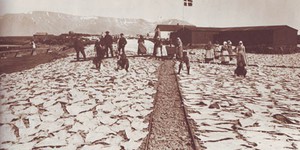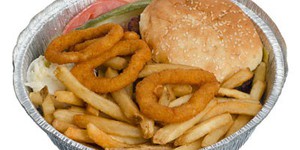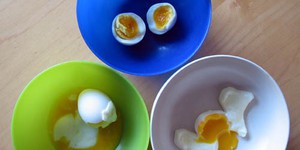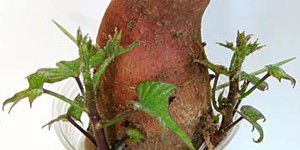Others Like “Hey, Do You C My Potatoes? Determining Vitamin C Amounts in Cooked Potatoes” (top 20 results)
|
Have any of your friends or family members ever had an allergic reaction to eggs? In this science project idea, you'll investigate how to modify recipes so that even egg-allergic friends and family members can enjoy them.
Read more
It's the bottom of the ninth, and you've spent a great afternoon at the ball game with a hotdog, a soda, and an ice cream in hand, but I'll bet you're not thinking about how many crops went into those classic baseball snacks. Sure, the bun contains wheat, but did you know that the hotdog might contain wheat, too? And soybeans may have been used to give that ice cream its perfectly smooth texture, while corn was likely used to sweeten the entire meal! Crops can be changed and added to processed…
Read more
Have you ever been told to avoid certain foods because they contain too much fat? Almost every food we eat has some amount of fat in it; often in an invisible form so we do not even notice. However, eating healthy does not mean getting rid of all fat in your diet. On the contrary, fat is an essential nutrient for your body! Only consuming too much of certain fat types creates problems. Are you curious about how to determine the fat content of different foods? Gather some chips, chocolate, and…
Read more
Have you ever noticed that the salt you are using says it is "iodized"?
Iodine is an important micronutrient, which means we need it in small quantities to be healthy. Because iodine is rare in many people's normal diets, it is added to table salt. Then when people salt their food, they are also adding this important micronutrient. In this food science project, you will use some kitchen-friendly chemistry to investigate which types of salt have iodine added (in the form of iodide) and which do…
Read more
This is a project about the "molecular alphabet" of DNA. With just four "letters," it manages to keep track of the plan for an entire person, and keep a complete copy in nearly every cell. This project will help you start learning this new alphabet.
Read more
Have you ever wondered why some foods taste really sour? Vinegar is one example that you might know from salad dressings or pickles. They taste pretty sour, right? There are many different types of vinegar that you can buy to use around the kitchen for cooking and pickling. The chemical compound that gives vinegar its tart taste and pungent smell is acetic acid. Do you think all the different vinegars contain the same amount of acetic acid? Are there some that are more sour than others? How…
Read more
If you browse through a candy cookbook, you might notice that many of the recipes call for corn syrup in addition to sugar. Both sugar and corn syrup are sweet, so why do you need corn syrup if you already have sugar? In candy making, corn syrup is known as an interfering agent. But what does this mean and how does it work? You can find out for yourself by making two batches of rock candy, one with corn syrup and one without. For example, you could alter the science project When Science is…
Read more
Sometimes on a busy day, it is hard to get things done. The rush to get things done can start first thing in the morning, when you are so busy getting ready and gathering your homework, that you barely have time for breakfast. It takes time to get a nutritious meal ready. But, eggs are a perfect choice for breakfast because they can be cooked quickly and in many different ways. A soft-boiled egg is a choice that many people make. They like the way the thickened, tasty yolk coats their hash…
Read more
Have you ever enjoyed eating a tasty sweet potato? They can be served as yummy mashed sweet potatoes with melted butter, turned into golden-brown sweet potato fries, or prepared in many other scrumptious ways. Did you know that you can make a sweet potato grow into a sweet potato plant, and grow several sweet potatoes this way? In this science project, you will grow your own sweet potato plants and investigate what part of the sweet potatoes is needed to grow the plants.
Read more
When you open a can of green beans, have you ever wondered why the beans are not mushy, or more like a puree? Canning requires boiling the beans for a long period of time to kill bacteria, so why don't the beans fall apart into small pieces? Some fruits and vegetables—like cherries, apples, potatoes, sweet potatoes, beets, carrots, beans, cauliflower, and tomatoes—have the ability to undergo hardening, or firming of their plant tissues. A special enzyme, called pectin methyl…
Read more
|
Explore Our Science Videos
How can air pressure prevent leaks?
Build A River Model – STEM Activity
DIY Mini Drone Part 5: Analog Joystick Control












